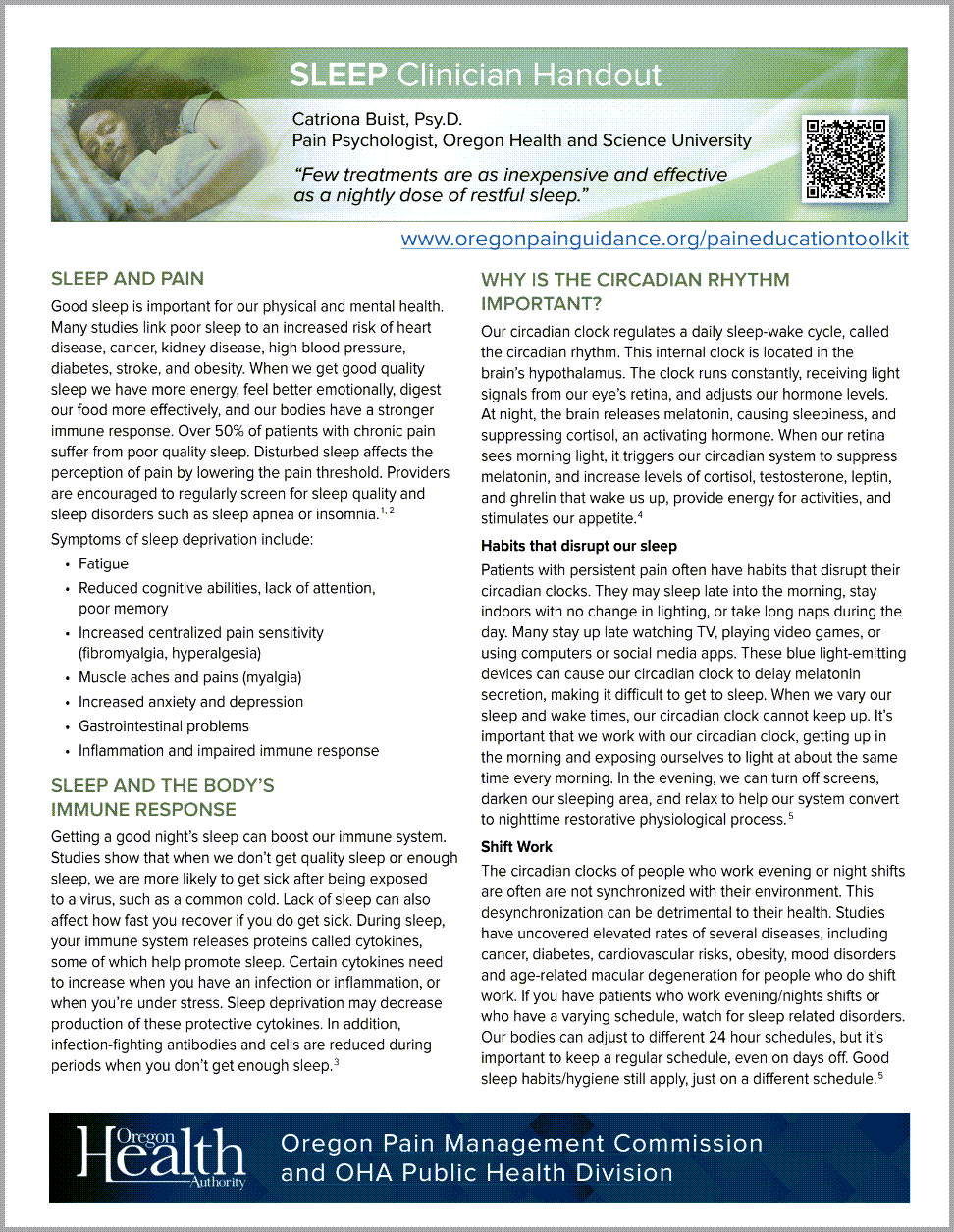HOW PAIN AND SLEEP WORK TOGETHER
Poor sleep can increase your patient’s pain, lower their ability to fight infection, and increase inflammation. Restful sleep can help decrease their chronic pain and improve their mood, which helps them feel more energized, active and social. Good sleep can also reduce their cravings for unhealthy foods.
WHAT CAN MAKE THINGS BETTER
Sleep often improves over time when your patients change their sleep habits, create a restful environment and reduce their stress. Good quality sleep improves their health and can boost their immune system.
 VIDEO
VIDEO
The sleep video has four sections:
- Identifying sleep problems
- Why sleep is important for pain management
- Ideas to improve sleep
- Goal setting
The video contains all the educational content, so be sure to have the patient watch the entire video.
 HANDOUT
HANDOUT
Download the handout to learn about:
- Symptoms of Sleep Deprivation
- Sleep and the Body’s Immune Response
- Why the Circadian Rhythm is Important
- Insomnia and CBT-i
- Sleep Apnea
- Sleep and Medications
The video contains all the educational content, so be sure to have the patient watch the entire video.
Download handout RESOURCES
RESOURCES
- Pain and Sleep: A Bidirectional Relationship
- The Role of Sleep in Pain and Fibromyalgia
- The Bidirectional Relationship between Sleep and Immunity against Infections
- Sleep, Immunity, and Circadian Clocks: a Mechanistic Model
- Association between Light at Night, Melatonin Secretion, Sleep Deprivation, and the Internal Clock
- Cognitive-Behavioral Therapy for Sleep Abnormalities of Chronic Pain Patients
- Chronic Widespread Musculoskeletal Pain in Patients with Obstructive Sleep Apnea Syndrome and the Relationship between Sleep Disorder and Pain Level, Quality of life, and disability


